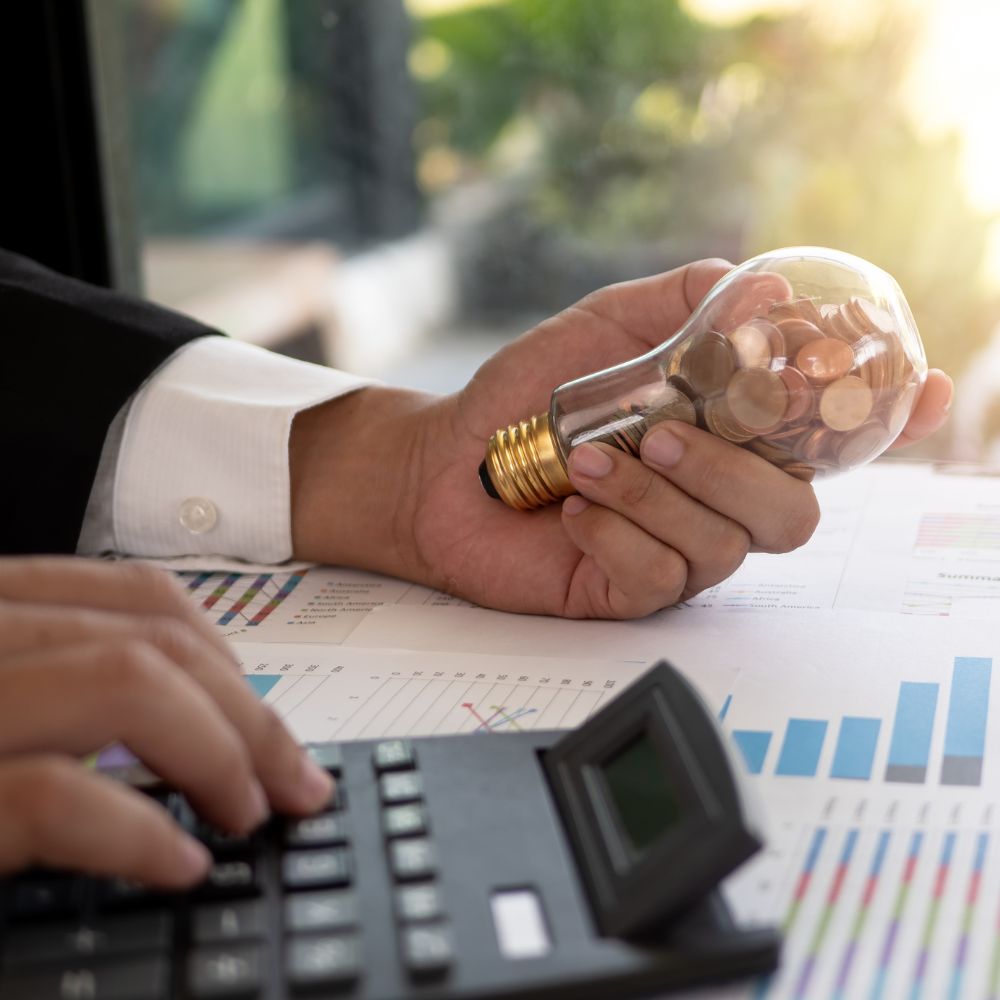Invest in Solar Energy to Control Rising Energy Costs
2024-10-03 15:39:23

South African businesses today are grappling with rising energy bills and a growing imperative to adopt eco-friendly practices. It’s clear why many are turning to solar energy, which delivers both environmental and financial benefits.
Solar energy enables companies to lock in electricity costs, protecting them from sudden price hikes. This helps stabilise energy expenses and ensures long-term financial security for businesses.
In this article, we’ll explore why solar energy is more than just an environmental decision. It’s a smart financial investment for companies looking to manage and control their electricity costs effectively over time.
The Rising Cost of Conventional Energy
Electricity costs have been on an upward trajectory for years. Depletion of fossil fuels, infrastructure upgrades, and regulatory changes are hiking these prices at an unprecedented rate.
For businesses, these rising costs translate into higher operational expenses, which can impact profitability and competitiveness. Furthermore, the unpredictability of electricity prices makes budgeting a challenge, as companies are often at the mercy of fluctuating tariffs and surcharges. This scenario creates a compelling case for businesses to seek alternative energy solutions that offer greater predictability and control over their expenses.
How Solar Energy Locks in Electricity Costs
After solar panel installation, businesses can generate their own electricity. This reduces and could even eliminate their dependence on the grid.
By harnessing the power of the sun, businesses can stabilise their energy costs for decades. Solar panels typically have a lifespan of 25 to 30 years. This long-term predictability is a game-changer. Businesses no longer have to worry about the financial uncertainty associated with traditional energy sources.
Fixed Energy Costs: The cost of energy production is essentially fixed when solar is installed. Businesses can calculate their energy costs over the lifespan of the system. This allows for more accurate financial planning and budgeting.
Protection Against Inflation: As utility rates rise over time due to inflation and other factors, businesses with solar energy systems are insulated from these increases. This protection provides a significant competitive edge, as companies can allocate resources more efficiently without worrying about unexpected energy cost spikes.
Reduced Peak Demand Charges: Solar energy can also help reduce peak demand charges. These are typically incurred during high electricity usage periods. Businesses can lower their demand from the grid by generating their own power during these times. This results in significant savings on their energy bills.
Financial Incentives and Return on Investment Investing in solar energy is not just about reducing operational costs. It's also about making a financially sound investment that can yield substantial returns. Various financial incentives and programs can further enhance the attractiveness of solar energy for businesses.
Tax Incentives and Rebates: Many governments offer tax credits, rebates, and other financial incentives to encourage businesses to adopt energy-efficient solutions. These incentives can significantly reduce the upfront cost of solar installations, shorten the payback period and enhance the return on investment (ROI).
Depreciation Benefits: Businesses can take advantage of accelerated depreciation for solar energy systems, allowing them to recover the cost of the investment more quickly through tax savings.
Increased Property Value: Commercial properties with solar installations are often more attractive to potential buyers or tenants due to the reduced energy costs. This can increase the property’s value and provide additional financial benefits in the long run.
Environmental and Corporate Social Responsibility (CSR) Benefits Beyond the financial advantages, investing in solar energy supports broader environmental and social goals. As companies become more attuned to the impact of their operations on the environment, solar energy provides a way to demonstrate corporate social responsibility (CSR) and commitment to sustainability.
Reduction in Carbon Footprint: By generating renewable, clean energy, businesses can significantly reduce their carbon emissions, contributing to the fight against climate change and meeting regulatory compliance requirements.
Enhanced Brand Image: Consumers and stakeholders are increasingly favouring businesses that prioritise sustainability. A solar energy investment can enhance a company's reputation, attract environmentally conscious customers, and strengthen stakeholder relationships.
Employee and Community Engagement: Demonstrating a commitment to renewable energy can also boost employee morale and engagement, as well as community support. Employees take pride in working for a company that values environmental responsibility, and local communities often appreciate businesses that contribute to the sustainability of the region.
Overcoming the Barriers to Solar Investment
Despite the clear advantages, some businesses may be hesitant to invest in solar energy. Perceived barriers such as high upfront costs, complex installation processes, and uncertainty about the technology's performance can be deterrents. However, these barriers are rapidly diminishing:
Financing Options: Various financing models, such as power purchase agreements (PPAs), leasing, and loans, make it easier for businesses to invest in solar without a significant upfront investment. These options allow businesses to benefit from solar energy savings from day one.
Technological Advancements: Advances in solar technology have improved efficiency and reduced costs, making solar energy more accessible and reliable than ever before.
Reliable Partners and Service Providers: Working with experienced service providers like Daisy Energy ensures a seamless transition to solar energy. Daisy provides comprehensive support from initial assessment to installation and maintenance.
Conclusion: A Strategic Investment for a Sustainable Future
Locking in electricity costs with solar energy is a strategic investment that offers businesses financial stability, environmental benefits, and a competitive edge. In South Africa, the energy landscape continues to evolve. Forward-thinking companies that embrace solar energy are positioning themselves for long-term success.
By partnering with a trusted provider like Daisy Business Solutions, businesses can confidently navigate the path to energy independence and sustainability. These businesses can secure a brighter and more prosperous future.
In an uncertain economic environment, the ability to predict and control costs is invaluable. Solar not only empowers businesses to achieve this but also aligns with broader goals of sustainability and corporate responsibility.
It's time for businesses to see beyond the initial investment and recognise the transformative potential of locking in electricity costs with solar energy—a move that promises to be as strategic as it is sustainable.


